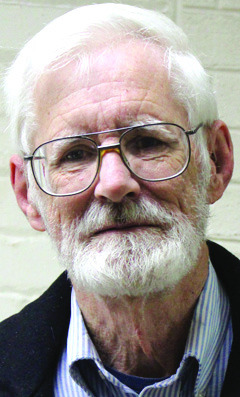Why was the senior senator from Virginia, head of one of the most power f ul c ommi t tees in the Senate, all but ignored by Hillary Clinton for her vice president? The Clinton family financial godfather, Terry McAuliffe, may be part of the answer.
Clearly, McAuliffe wanted to be appointed from governor to U.S. senator but why not replace more wealthy, famous Sen. Mark Warner who just got re-elected to a six-year term? If he replaced Warner, he would be in office for most of his remaining term if Hillary and Warner were elected?
The answer may be because Warner barely won reelection in part due to a conservative third party!
Warner was up for re-election in 2014 and early on he was favored by 20 points over Republican candidate Ed Gillespie. On Election Day, polls had tightened and Warner was still ahead by a 9-point margin according to the polls. Then came the surprise, Warner won, 1,073,661 votes to Gillespie vote of 1,055,940. A victory, but a narrow one, just 17,721 votes or less than 1 percent.
While the media praised the Warner win as a Democrat victory, few of the media noted that Robert Sarvis running under the conservative Libertarian Party received 146,084 votes. If he had not been in the race, I think it is fair to say, most of his vote would have gone to the Republican candidate and Gillespie would have been the new senator!
McAuliffe knew the facts and Warner was at best a weakened candidate and his attention turned to the junior senator, Tim Kaine. Kaine had won the Senate seat in 2011 against former Governor and Senator George Allen.
Kaine hoped Obama, who he endorsed very early, would pick him for his vice presidential choice. But Obama selected the better known and more progressive Joe Biden.
When it was Hillary’s turn, Kaine fit McAuliffe’s needs. A Virginia senator without the recent near election defeat he could replace as his oneterm limit as governor ended. Hillary, in his mind, was a shoe in for president against Trump.
Problem was Kaine was not an asset to the Clinton campaign and ignored by the public until his debate with Mike Pence, Trump’s VP choice. Early polls had Kaine mopping the floor with quiet Pence but the debate was a disaster for Kaine. He came off as “arrogant,” “insulting,” “overbearing” and other terms by media after he had rudely interrupted Pence some 70 times with nonsense comments.
The Clinton campaign wisely delegated Kaine to obscure events and out of the limelight after the debate.
Today, political commentators claim Kaine has a wide margin over former Navy Capt. Hung Cao and expect Kaine to win, but they fail to note a change in Virginia politics and how early polls tend to change as the opponent becomes better known.
Glen Youngkin defeated candidate Terry McAuliffe who came back for a second run for governor. The final vote was Youngkin, 1,663,158, to McAuliffe’s 1,599,470. The Libertarian Party had pretty much folded and returned campaign funds. The Libertarian candidate that did run under the banner got a total of only 23,125 votes.
The difference was Glen Youngkin ran a hard-fought campaign and worked to get votes in western Virginia. Republicans have learned that each congressional district has about the same number of residents and potential voters. Northern Virginia has done a better job of getting out the Democrat vote and voter turnout outside of Northern Virginia has been lower. That changed as voters outside the Northern Virginia area came out in record numbers.
The non-Northern Virginia areas now know they can be a strong political force. The surprise polling showing a tie between Biden and Trump means Virginia could easily be a swing state and even a change from “purple” to “red” this year.
Add to the mix, Republicans have nominated Cao, who had been a 10-year-old Vietnamese refugee when he came to America and went on to become a graduate of the U.S. Navy Academy and war hero to be their challenger to Tim Kaine for the Senate.

.jpg)


